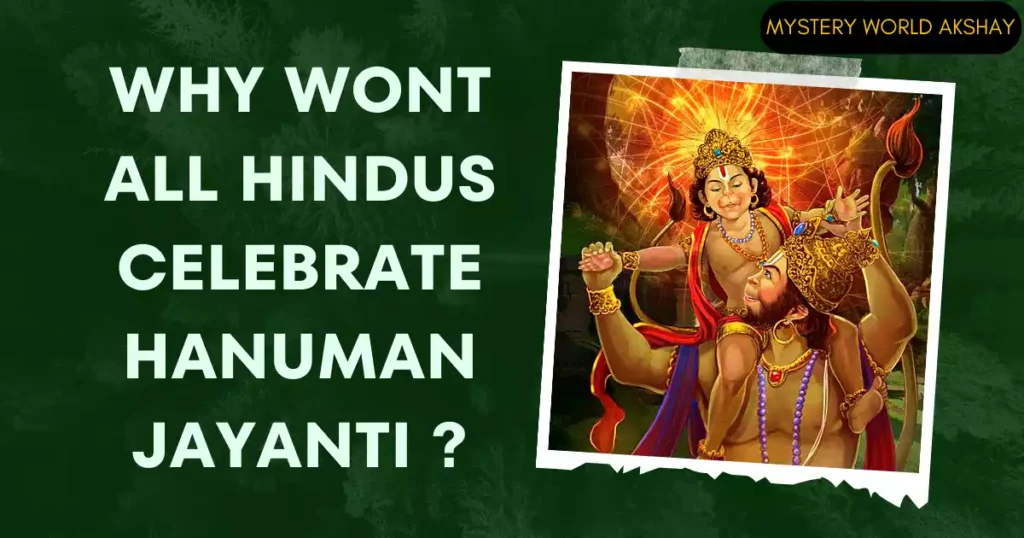In this blog article, we will look at the reason why not every Hindus celebrate Hanuman Jayanti on the same day and how different Hindu communities and sects determine the date of the festival.
Hanuman Jayanti is a significant Hindu festival held each year to commemorate the birth of Lord Hanuman, the monkey god who is revered by many Hindus for his strength, courage, and devotion. Different Hindu communities and sects celebrate the festival on different dates, which has caused confusion and controversy about when the festival should be celebrated.

Regional Differences
One of the primary reasons why Hanuman Jayanti is celebrated on different dates by different communities of Hindus is due to regional differences. India is a huge nation with diversified traditions and cultures, and each region celebrates the festival in its own unique way. In North India, Hanuman Jayanti is observed on the full moon day of the Hindu month of Chaitra, whereas in South India, it is observed on the new moon day of the Hindu month of Margashirsha.
Different Calendars
Another reason why Hanuman Jayanti is celebrated on different dates is due to the use of different calendars by different communities and sects of Hinduism. There are multiple regional variations of the Hindu calendar that are utilised in various regions of India. The Hindu calendar is a complicated system that is based on the moon cycle and solar cycle.
West Bengal and Bangladesh use the Bengali calendar, while Tamil Nadu uses the Tamil calendar. Each of these calendars has its own way of calculating the dates of festivals and celebrations, which can lead to differences in the date of Hanuman Jayanti.
Different Traditions and Beliefs
Many distinct Hindu communities and sects, each of which has its own special customs and beliefs, all commemorate Hanuman Jayanti. For instance, some cultures consider Hanuman Jayanti to be observed on the day the star Hanuman was born, while others consider it appropriate to observe it on the day Hanuman first saw Lord Rama.
Similarly, some communities believe that Hanuman Jayanti should be celebrated for one day, while others celebrate it for a period of five or seven days. These differences in traditions and beliefs can also lead to differences in the date of Hanuman Jayanti.
Astrological Considerations
Hinduism places a high value on astrology, and many tribes and sects of Hindus utilise astrological calculations to decide the Hanuman Jayanti holiday’s date. For example, a few humans and groups consider that Hanuman Jayanti need to be celebrated at the day whilst the solar is withinside the Aries zodiac sign, whilst different groups consider that it need to be celebrated at the day whilst the solar is withinside the Taurus zodiac sign.
These astrological considerations can lead to differences in the date of Hanuman Jayanti, as different communities and sects may have different beliefs about the significance of astrological events.
Historical Context
The date of Hanuman Jayanti is also influenced by the historical context of the festival. For instance, in some regions of India, the festival is celebrated as the birth of Lord Hanuman’s and in other regions it is celebrated as his victory over the asur king Ravana.
These historical events are important to different communities and sects of Hinduism and can influence the date of Hanuman Jayanti based on their interpretations of the significance of these events.
In conclusion, the date of Hanuman Jayanti varies among different communities and sects of Hinduism due to a variety of factors, including regional differences, the use of different calendars, different traditions and beliefs, astrological considerations, and historical context.
